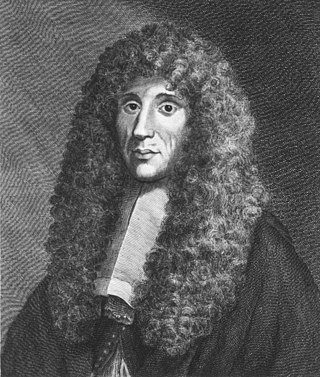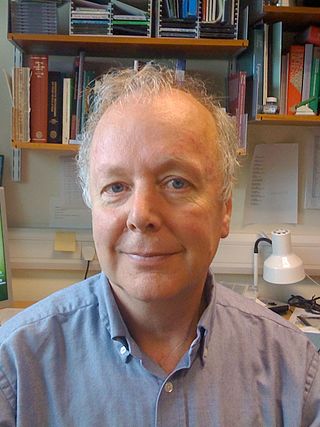
Michael Smith was a British-born Canadian biochemist and businessman. He shared the 1993 Nobel Prize in Chemistry with Kary Mullis for his work in developing site-directed mutagenesis. Following a PhD in 1956 from the University of Manchester, he undertook postdoctoral research with Har Gobind Khorana at the British Columbia Research Council in Vancouver, British Columbia, Canada. Subsequently, Smith worked at the Fisheries Research Board of Canada Laboratory in Vancouver before being appointed a professor of biochemistry in the UBC Faculty of Medicine in 1966. Smith's career included roles as the founding director of the UBC Biotechnology Laboratory and the founding scientific leader of the Protein Engineering Network of Centres of Excellence (PENCE). In 1996 he was named Peter Wall Distinguished Professor of Biotechnology. Subsequently, he became the founding director of the Genome Sequencing Centre at the BC Cancer Research Centre.

The Medical Research Council (MRC) is responsible for co-coordinating and funding medical research in the United Kingdom. It is part of United Kingdom Research and Innovation (UKRI), which came into operation 1 April 2018, and brings together the UK's seven research councils, Innovate UK and Research England. UK Research and Innovation is answerable to, although politically independent from, the Department for Business, Energy and Industrial Strategy.

Sir Walter Fred Bodmer is a German-born British human geneticist.
The Jawaharlal Nehru Centre for Advanced Scientific Research (JNCASR) is a multidisciplinary research institute located at Jakkur, Bangalore, India. It was established by the Department of Science and Technology of the Government of India, to mark the birth centenary of Pandit Jawaharlal Nehru, the first prime minister of independent India. It is considered one of the most prestigious research institutes in India. In 2019, JNCASR was ranked #7 among the world's top ten research institutes by Nature journal in a normalised ranking of small research institutes with high quality output.

A biologist is a scientist who conducts research in biology. Biologists are interested in studying life on Earth, whether it is an individual cell, a multicellular organism, or a community of interacting populations. They usually specialize in a particular branch of biology and have a specific research focus.
Anthony James Trewavas FRS FRSE is Emeritus Professor in the School of Biological Sciences of the University of Edinburgh best known for his research in the fields of plant physiology and molecular biology. His research investigates plant behaviour.

The Cambridge Biomedical Campus is the largest centre of medical research and health science in Europe. The site is located at the southern end of Hills Road in Cambridge, England.
The School of Biological Sciences is a School within the Faculty Biology, Medicine and Health at The University of Manchester. Biology at University of Manchester and its precursor institutions has gone through a number of reorganizations, the latest of which was the change from a Faculty of Life Sciences to the current School.
The Sir William Dunn School of Pathology is a department within the University of Oxford. Its research programme includes the cellular and molecular biology of pathogens, the immune response, cancer and cardiovascular disease. It teaches undergraduate and graduate courses in the medical sciences.
Jean Duthie Beggs CBE FRS FRSE DSc is a Scottish geneticist. She is the Royal Society Darwin Trust Professor in the Wellcome Trust Centre for Cell Biology at the University of Edinburgh.

Sir Adrian Peter Bird, is a British geneticist and Buchanan Professor of Genetics at the University of Edinburgh. Bird has spent much of his academic career in Edinburgh, from receiving his PhD in 1970 to working at the MRC Mammalian Genome Unit and later serving as director of the Wellcome Trust Centre for Cell Biology. His research focuses on understanding DNA methylation and CpG islands, and their role in diseases such as Rett syndrome.
Andrea Hilary Brand is the Herchel Smith Professor of Molecular Biology and a Fellow of Jesus College, Cambridge. She heads a lab investigating nervous system development at the Gurdon Institute and the Department of Physiology, Development and Neuroscience. She developed the GAL4/UAS system with Norbert Perrimon which has been described as “a fly geneticist's Swiss army knife”.

Sir Peter John Ratcliffe, FRS, FMedSci is a British physician-scientist who is trained as a nephrologist. He was a practising clinician at the John Radcliffe Hospital, Oxford and Nuffield Professor of Clinical Medicine and head of the Nuffield Department of Clinical Medicine at the University of Oxford from 2004 to 2016. He has been a Fellow of Magdalen College, Oxford since 2004. In 2016 he became Clinical Research Director at the Francis Crick Institute, retaining a position at Oxford as a member of the Ludwig Institute of Cancer Research and director of the Target Discovery Institute, University of Oxford.
David Chaim Rubinsztein FRS FMedSci is the Deputy Director of the Cambridge Institute of Medical Research (CIMR), Professor of Molecular Neurogenetics at the University of Cambridge and a UK Dementia Research Institute Professor.
The School of Life Sciences at the University of Dundee conducts research into the molecular and cellular mechanisms underlying human health and disease.

Anton Gartner is a geneticist and biologist utilizing the nematode worm Caenorhabditis elegans as a model system He is a distinguished professor at the Ulsan National Institute of Science and Technology (UNIST) in Korea and is one of the two associate directors of the IBS Center for Genomic Integrity located on the UNIST campus.

The MRC Weatherall Institute of Molecular Medicine at the University of Oxford is a research institute located at the John Radcliffe Hospital in Oxford. Founded in 1989 by Sir David Weatherall, the institute focuses on furthering our understanding of clinical medicine at a molecular level. It was one of the first institutes of its kind in the world to be dedicated to research in this area.
The Cambridge Institute for Medical Research (CIMR) is an interdisciplinary research institute within the University of Cambridge School of Clinical Medicine. CIMR is on the Cambridge Biomedical Campus, in the Keith Peters Building, a dedicated research building that it shares with the Medical Research Council Mitochondrial Biology Unit.












